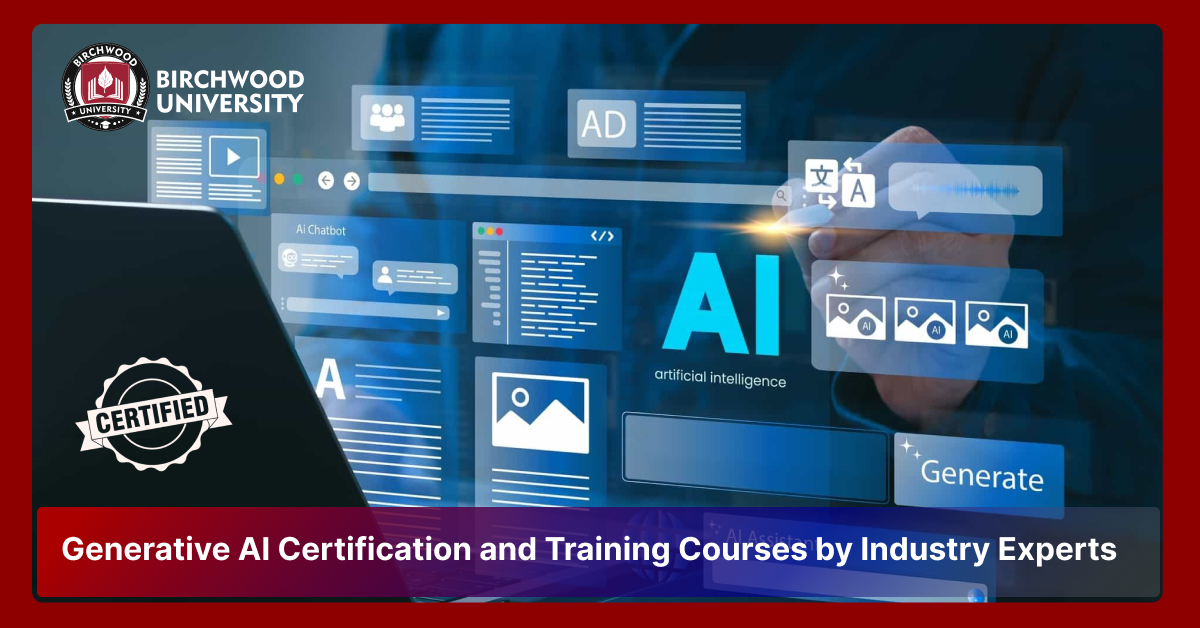What is Artificial Intelligence and How do I grow my career in AI?
May 31, 2024The term artificial intelligence (AI) is now widely used and permeates every aspect of our daily life. From the moment you unlock your smartphone with facial recognition to the curated recommendations on your favorite streaming service, AI is silently working behind the scenes. But what is Artificial Intelligence, and how can you leverage this revolutionary technology to grow in your career?
What is Artificial Intelligence?
At its core, AI is the field of computer science dedicated to creating intelligent machines that can mimic human cognitive functions like learning, problem-solving, and decision-making. It's not about replicating human consciousness, but rather about building machines capable of performing tasks that traditionally required human intelligence.
AI encompasses a vast spectrum of subfields, each tackling specific aspects of intelligent behavior:
- Machine Learning (ML): ML allows machines to learn from data without explicit programming. Algorithms analyze large datasets, identifying patterns and relationships to make predictions or decisions.
- Deep Learning: A branch of machine learning inspired by the composition and operation of the human brain. Deep learning uses artificial neural networks, layered algorithms loosely mimicking the interconnected neurons in the brain, to process complex information like images, speech, and text.
- Natural Language Processing (NLP): NLP enables machines to understand and generate human language. This field underpins applications like chatbots, machine translation, and sentiment analysis.
- Computer Vision: This subfield equips machines with the ability to "see" and interpret the visual world. Applications range from facial recognition software to self-driving cars.
- Robotics: AI and mechanical engineering are combined in robotics to build intelligent robots that can interact with their environment.
The Growing use of AI and its impact on Careers:
AI is rapidly transforming industries, creating a wealth of new career opportunities. Here are some sectors experiencing significant AI growth:
- Healthcare: AI is utilized in customized medication discovery and disease diagnostics.
- Finance: AI automates fraud detection, risk management, and personalized financial recommendations.
- Manufacturing: AI optimizes production lies, predicts equipment failure, and improves recommendations.
- Transportation: Self-driving cars and autonomous delivery drones are powered by AI.
- Customer Service: Chatbots powered by AI provide 24/7 customer support and personalized recommendations.
Building Your Career in AI Technology:
AI is an intriguing field with a wide range of job options. Here's how you can build your career in AI technology and position yourself for success in this growing field:
- Identify your Strengths and Interests: AI encompasses a broad spectrum of disciplines. Do you enjoy tackling complex algorithms? Are you fascinated by human-computer interaction? Identifying your strengths and interests will help you choose a specific AI subfield to focus on.
- Develop a strong foundation in computer science: Most AI careers require a solid understanding of computer science principles like programming, data structures, and algorithms. A bachelor's degree in computer science, information technology, or a related field is a valuable starting point.
- Deepen your knowledge with AI-specific courses and certifications: Numerous online courses, boot camps, and certifications offered by universities, tech giants, and training platforms can equip you with the specialized skills needed for an AI career. Popular options include machine learning, deep learning, computer vision, and NLP certifications.
- Build a strong portfolio: Showcase your AI skills by actively working on projects. This could involve participating in hackathons, contributing to open-source AI projects, or building your projects using AI tools and libraries.
- Network with AI Professionals: Connect with people working in the field through online forums, meetups, and conferences. These interactions can provide valuable insights into specific AI careers and expose you to potential job opportunities.
Top Career in AI Technology:
Here are some of the most demanded careers in AI technology:
- Machine Learning Engineer: Design, build, and implement machine learning models for various applications.
- Data Scientist: Collects, analyzes, and interprets large datasets to extract valuable insights and build predictive models.
- AI Software Engineer: Develops and maintains software applications supported by AI algorithms.
- Computer Vision Engineer: Creates an intelligent system that can understand and process visual information.
- Natural Language Processing Engineer: Develops algorithms that enable machines to communicate and understand human language.
- Robotics Engineer: Designs, builds, and programs robots capable of interacting with the physical world.
- AI Product Manager: Leads development and implementation of AI-powered products.
Skills, and staying updated with the latest advancements, you can position yourself for a rewarding and exciting career in this transformative field.
Continuous Learning is a Key:
The field of AI is constantly evolving, with new research, algorithms, and tools emerging at a rapid pace. To stay competitive, continuous learning is essential. Here are some tips to stay ahead of the curve:
- Follow leading AI researchers and publications: Subscribe to blogs, research papers, and online communities focused on AI advancements.
- Engage in online courses and workshops: Take advantage of the abundance of online learning platforms offering courses on cutting-edge AI topics.
- Attend industry conferences and meetups: Connect with other professionals, learn about the latest trends, and network with potential employers.
The Important Soft Skills:
While technical skills are crucial for success in AI, soft skills like critical thinking, and problem-solving, and communication are equally important. Here's why:
- Complex Problem-Solving: AI projects often involve tackling intricate problems. Strong problem-solving skills will enable you to break down complex challenges into manageable steps and develop effective solutions.
- Critical Thinking: AI professionals need to analyze data, evaluate results, and make sound judgments. Critical thinking allows you to approach problems objectively and identify the best course of action.
- Creativity and Innovation: AI is a field brimming with opportunities for innovation. Creativity allows you to develop novel solutions and approach problems from unique perspectives.
The Ethical Consideration of AI:
As Ai advances in sophistication, ethical issues become increasingly pressing. Here are some key areas AI professionals need to be mindful of:
- Bias and Fairness
- Transparency and Explainability
- Security and Privacy
Conclusion:
A career in AI technology offers the opportunity to be at the forefront of technological innovation. By fostering a combination of technical expertise, continuous learning, and a strong ethical compass, you can contribute to shaping the future of Artificial Intelligence and its impact on society.






